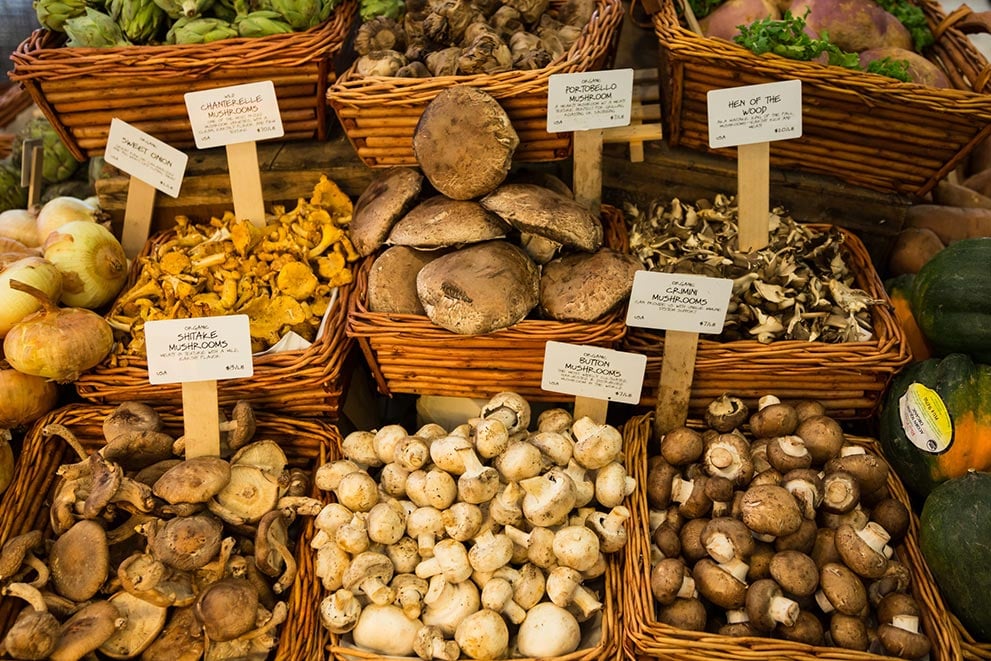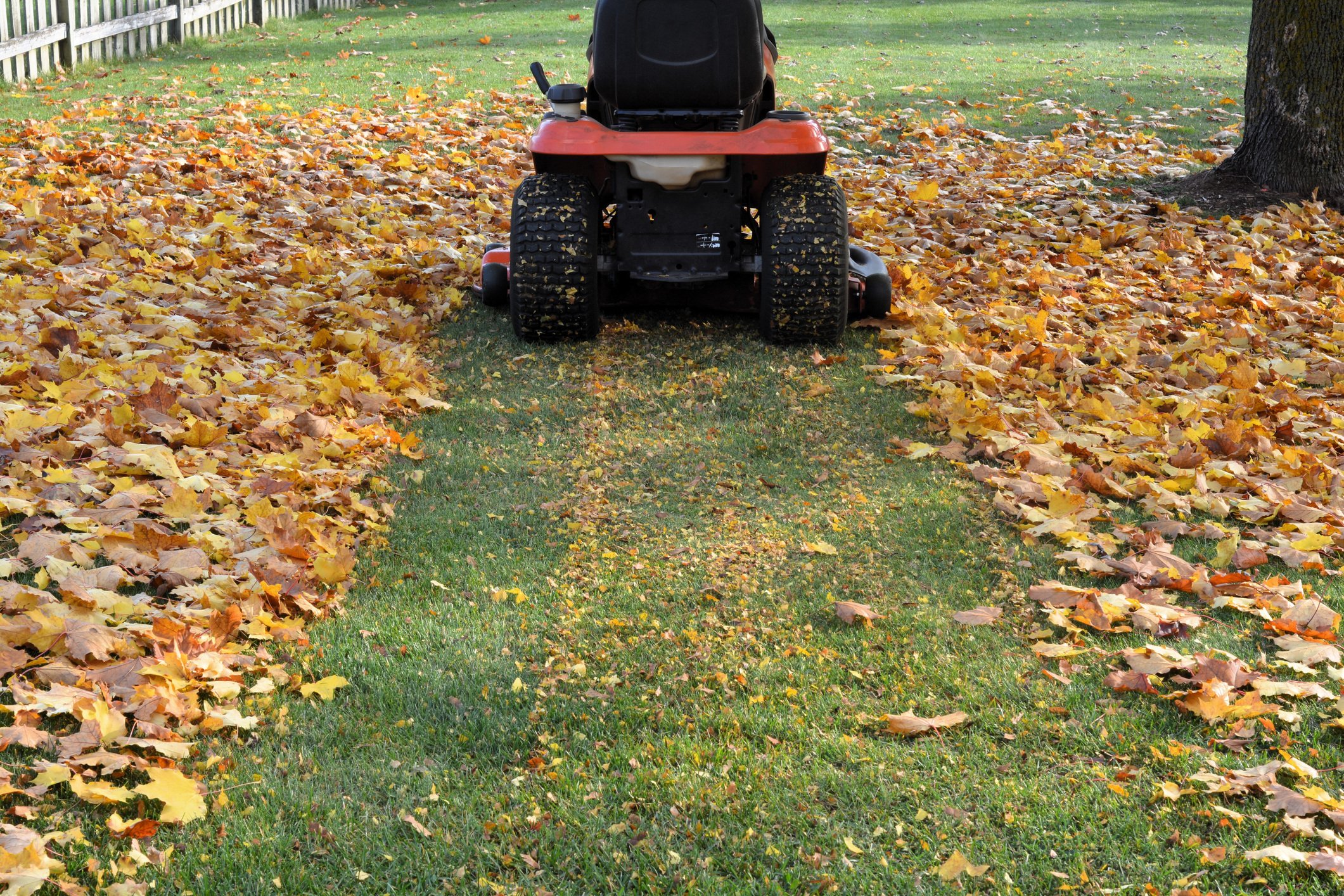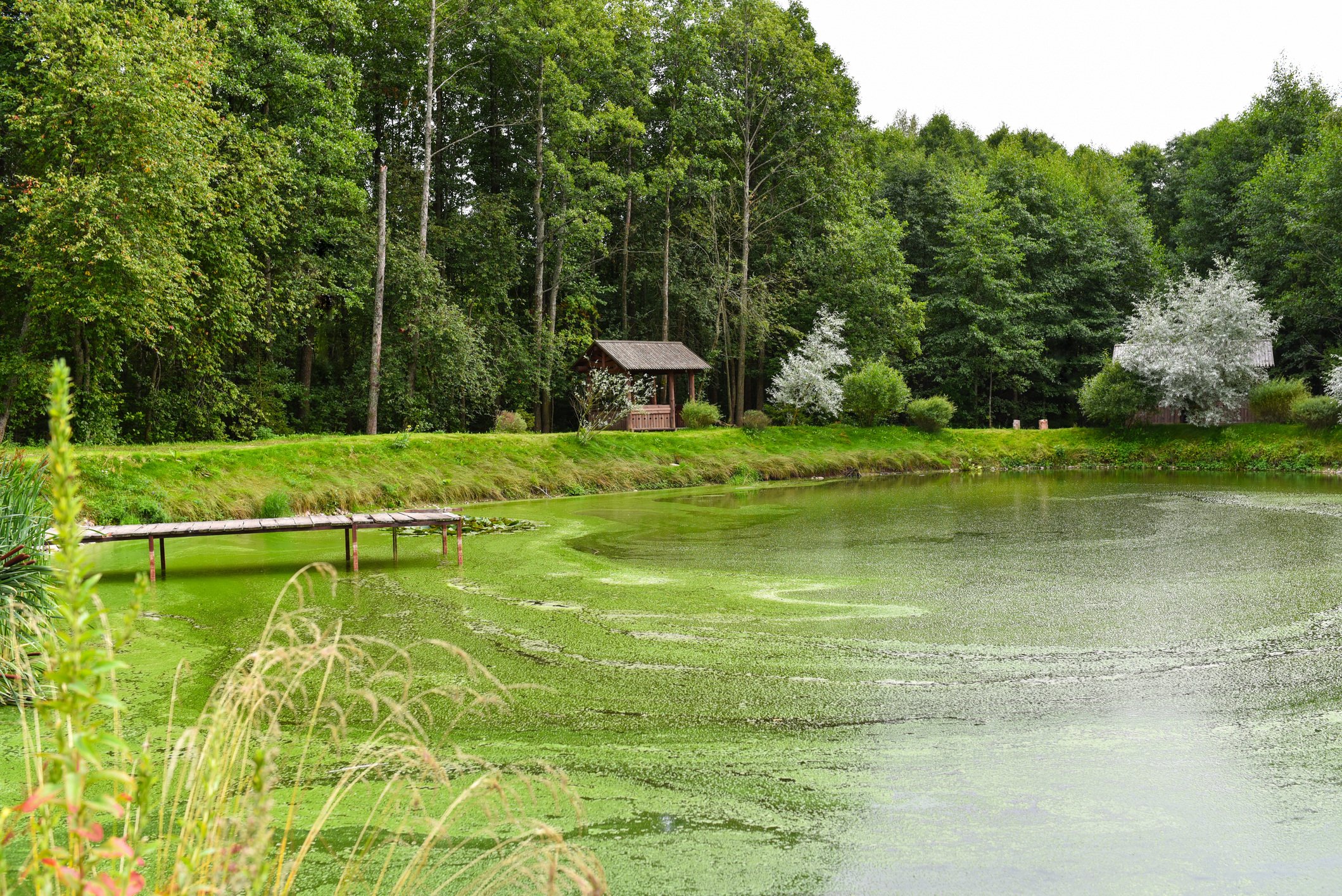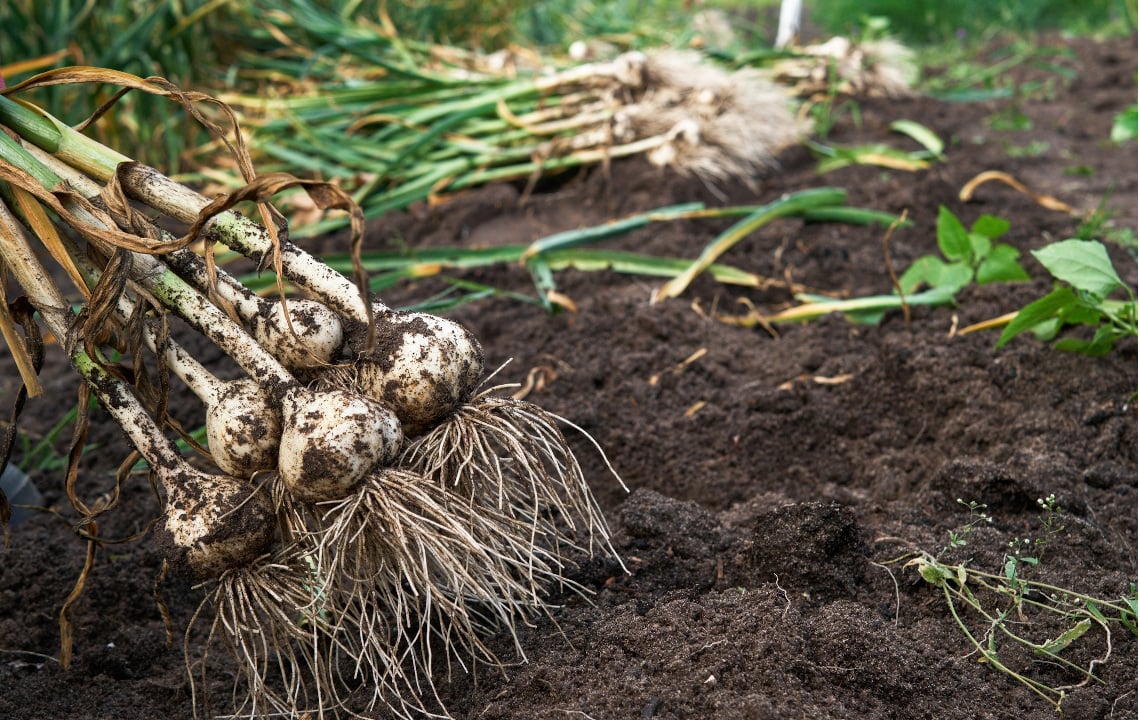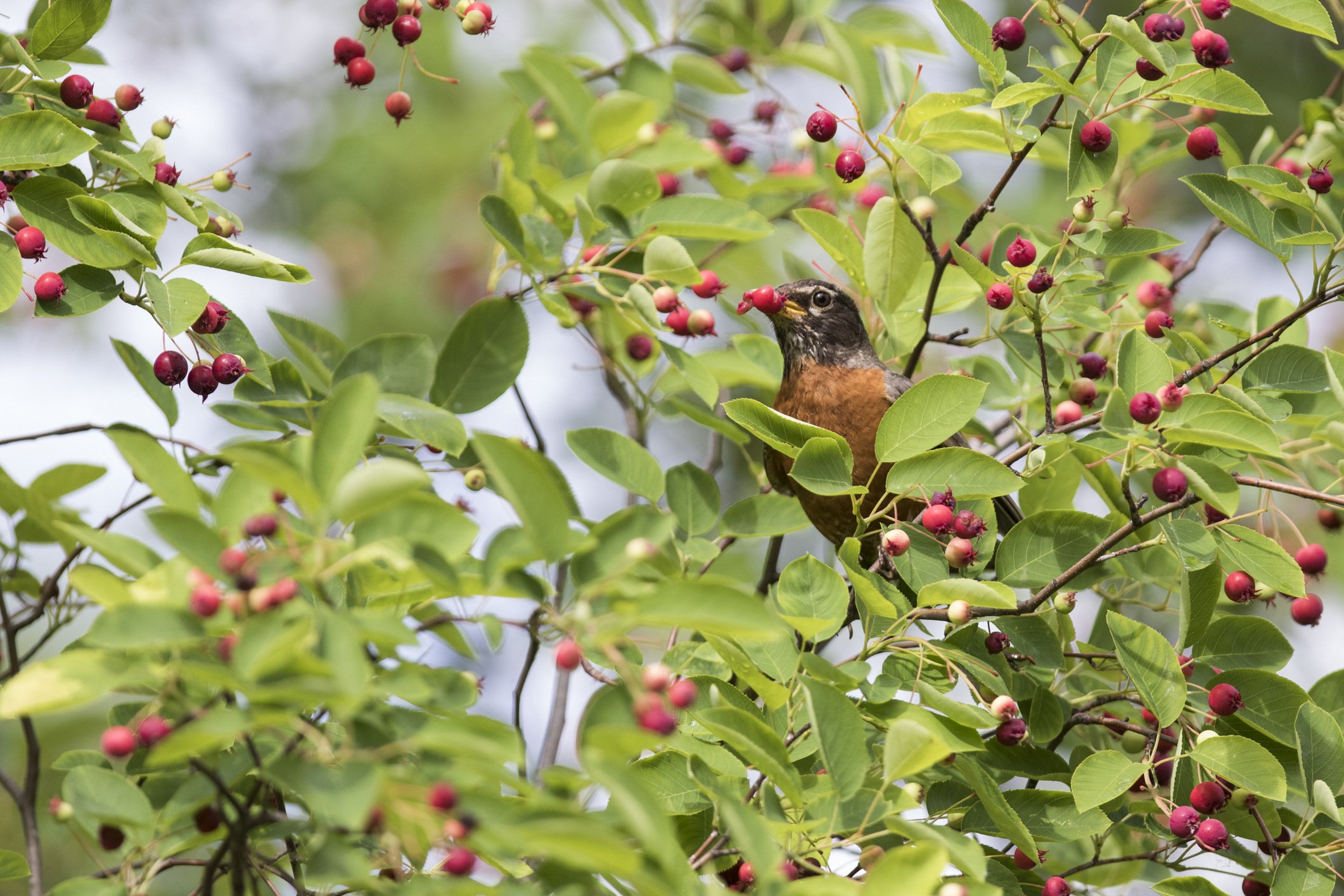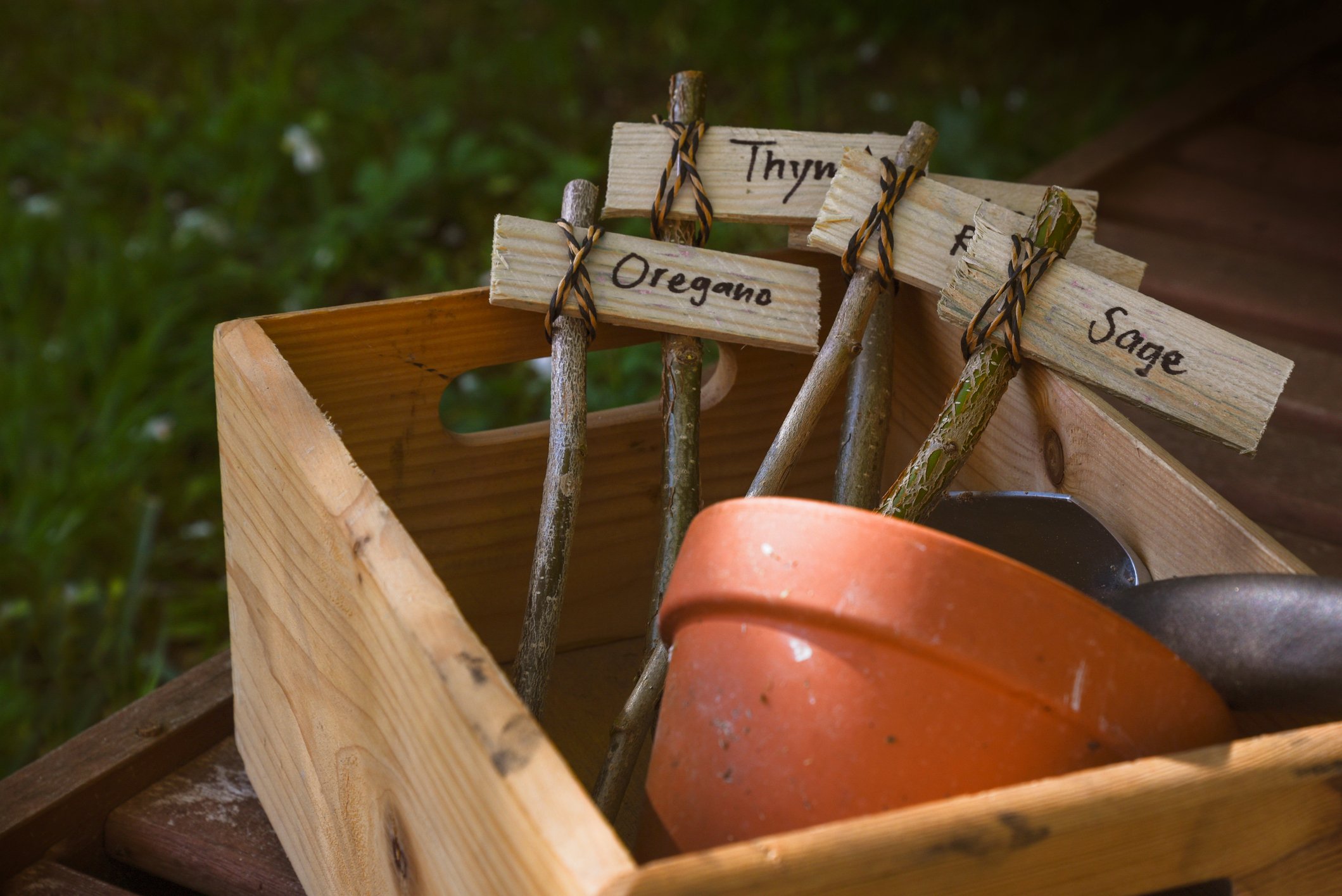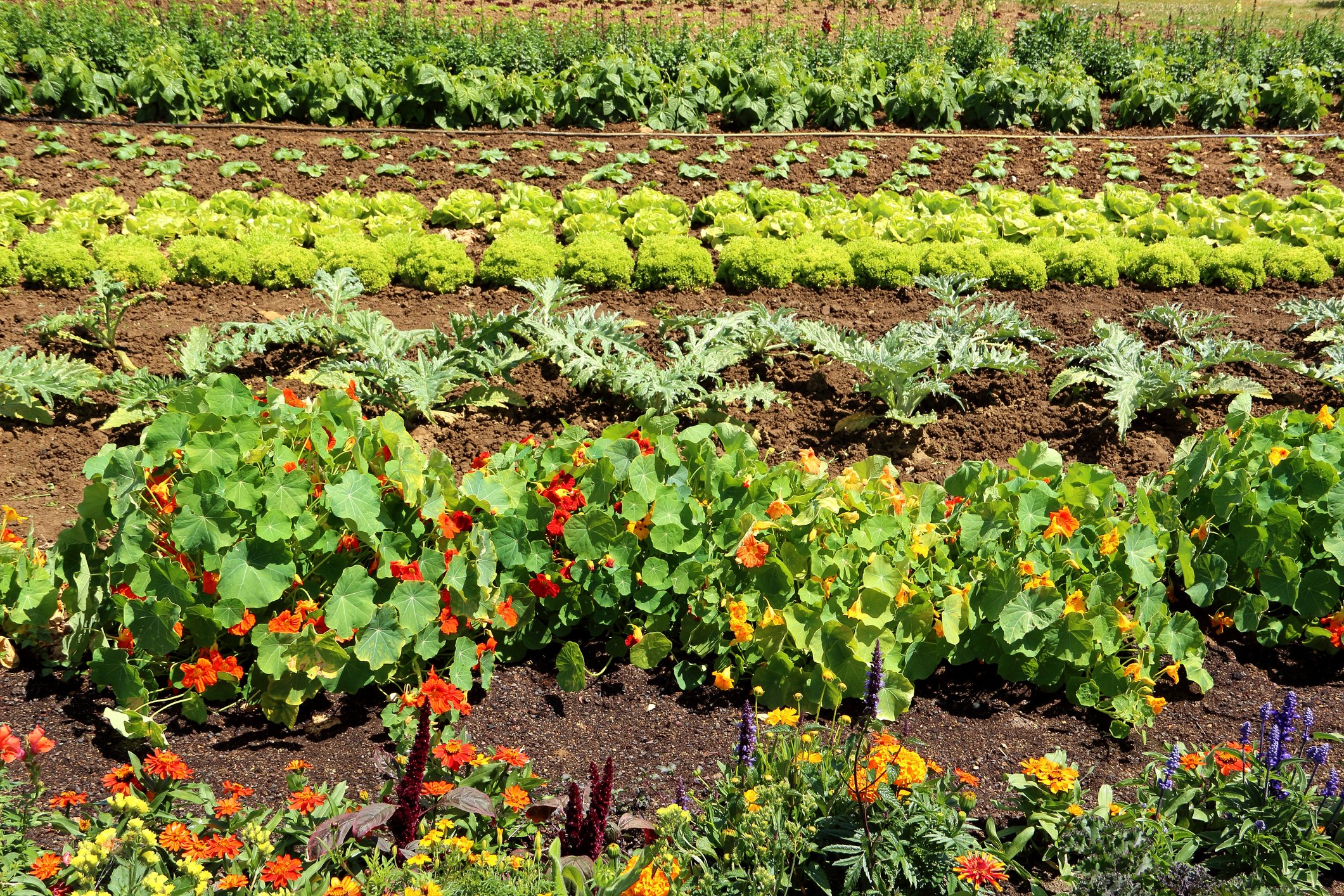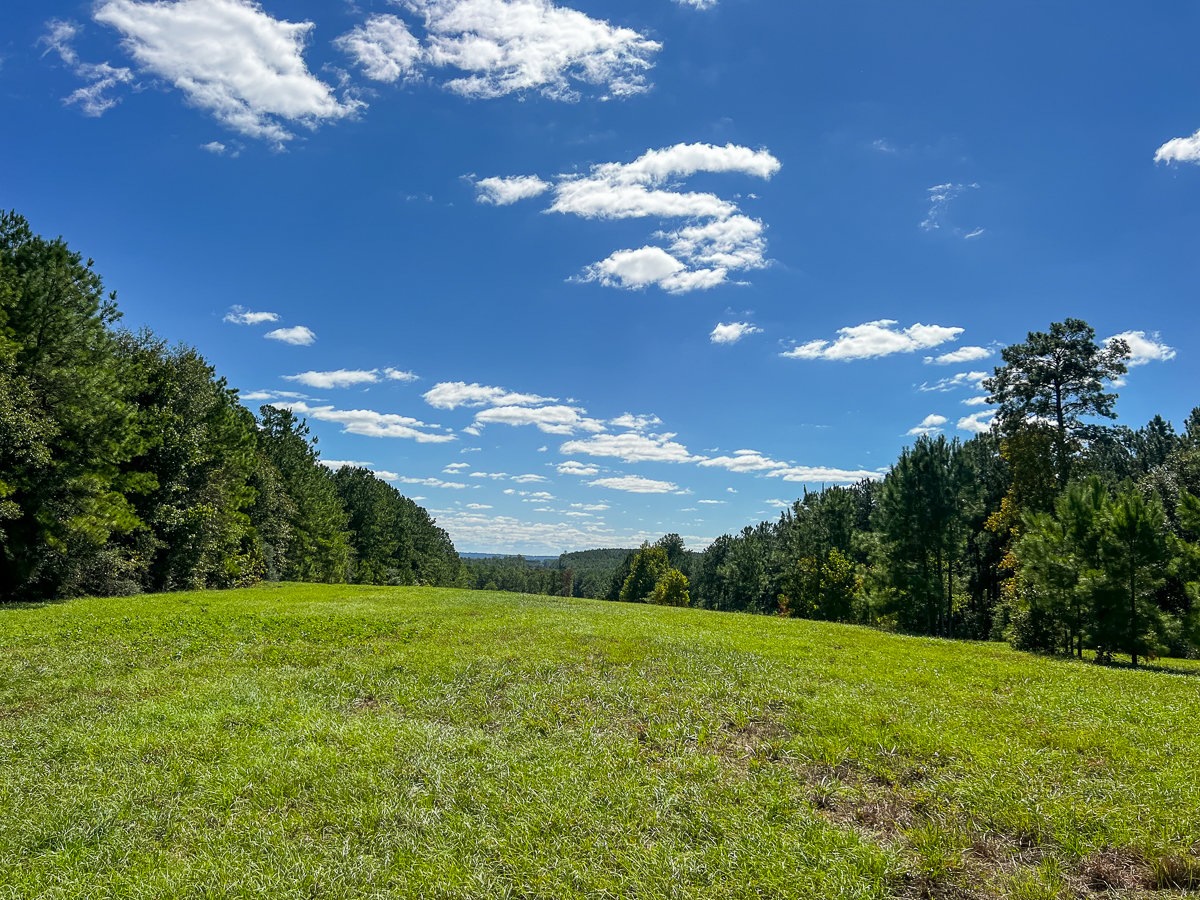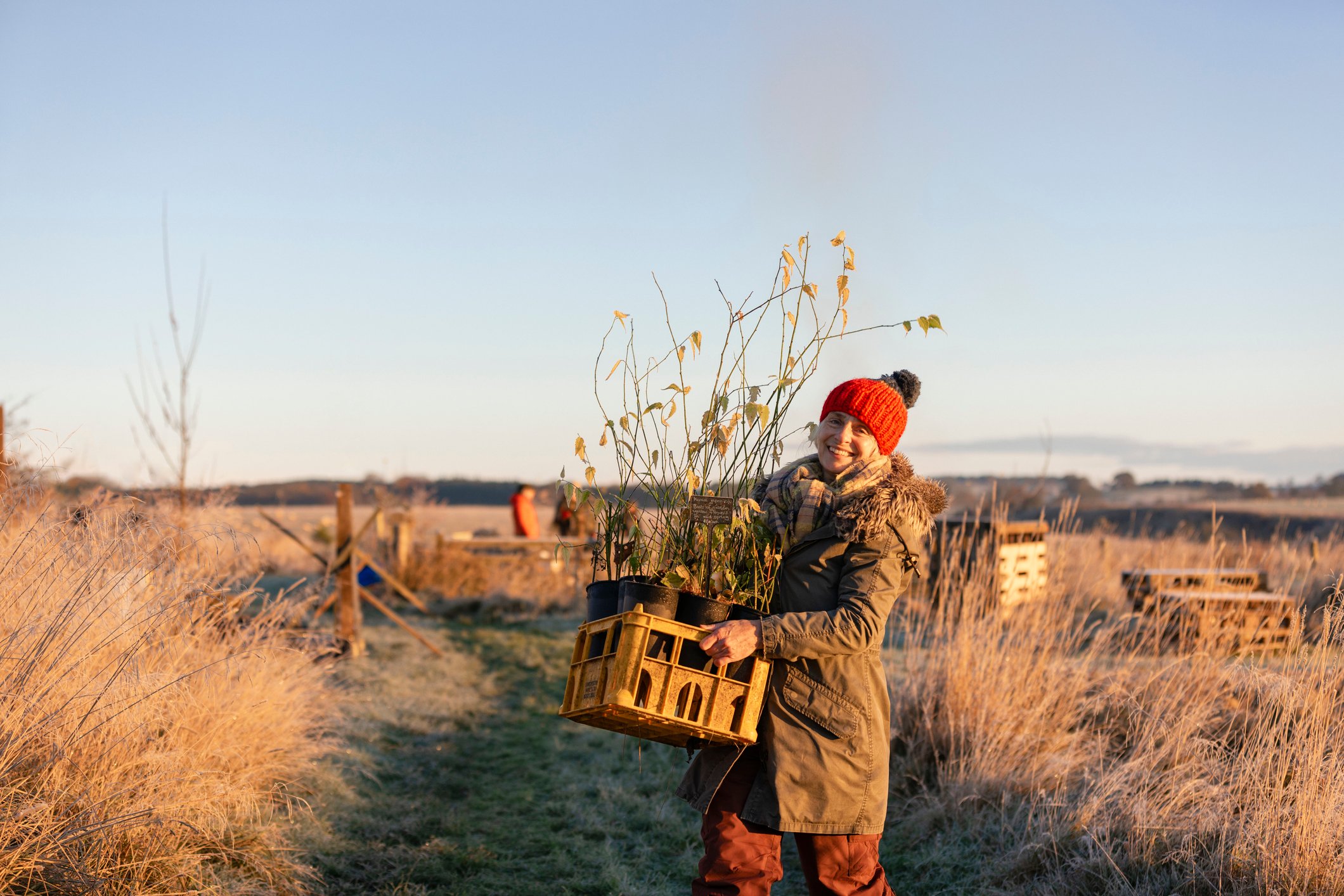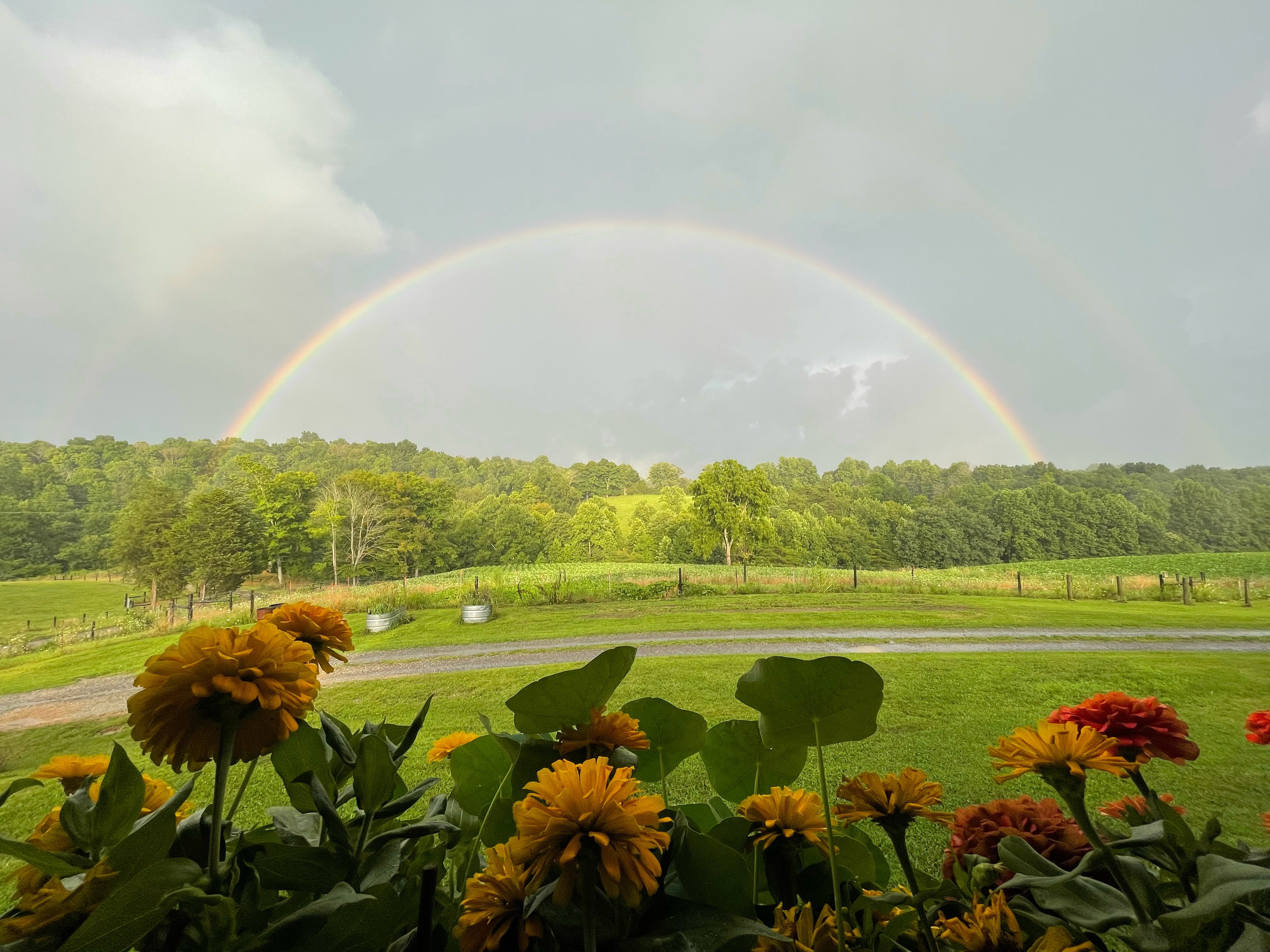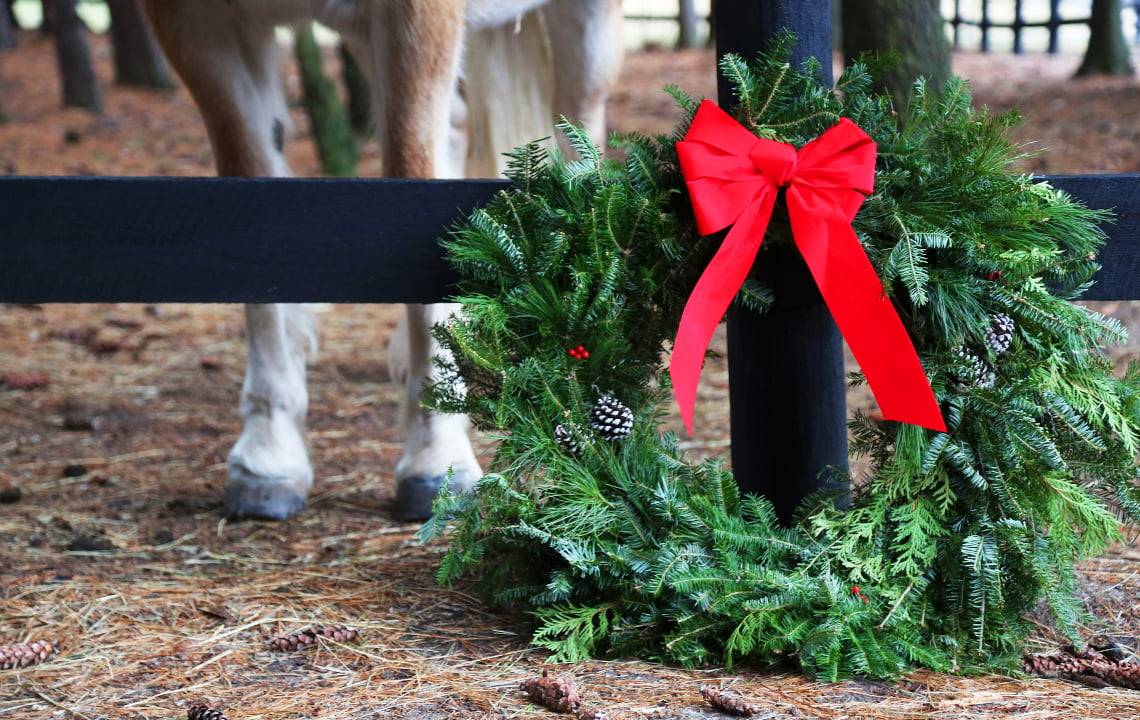Could mushroom farming be the ideal way to put your rural land to use? Best-selling author and medicinal mushroom expert Tradd Cotter shares how his mushroom business bloomed.
One of the advantages of owning rural land is that you can put that land to use as a residence, a place to enjoy your hobbies and a means to generate income.
But if you have limited experience in agriculture, animal husbandry or farming in general, is there a way to profit from your acreage?
Enter the medicinal or gourmet mushroom.
Though many of us have watched cooking specials on celebrity chefs foraging for these exotic fungi against the backdrop of the Pacific Northwest, they can be easily cultivated in the Southern states too…and there is a big market for them.
Shiitakes, for example, are in high demand in the natural foods, supplement and gourmet markets, they’re fairly easy to grow on logs (no soil science background required) and can be quite profitable.
In today’s post, we talk with best-selling author and medicinal mushroom expert Tradd Cotter of Mushroom Mountain Farm in Easley, South Carolina, where he and his wife, Olga, specialize in growing medicinal mushrooms, formulating and manufacturing mushroom tinctures, providing educational workshops and selling mushroom-growing supplies…and they’re making a killing at it.
How Mushroom Mountain Got Started
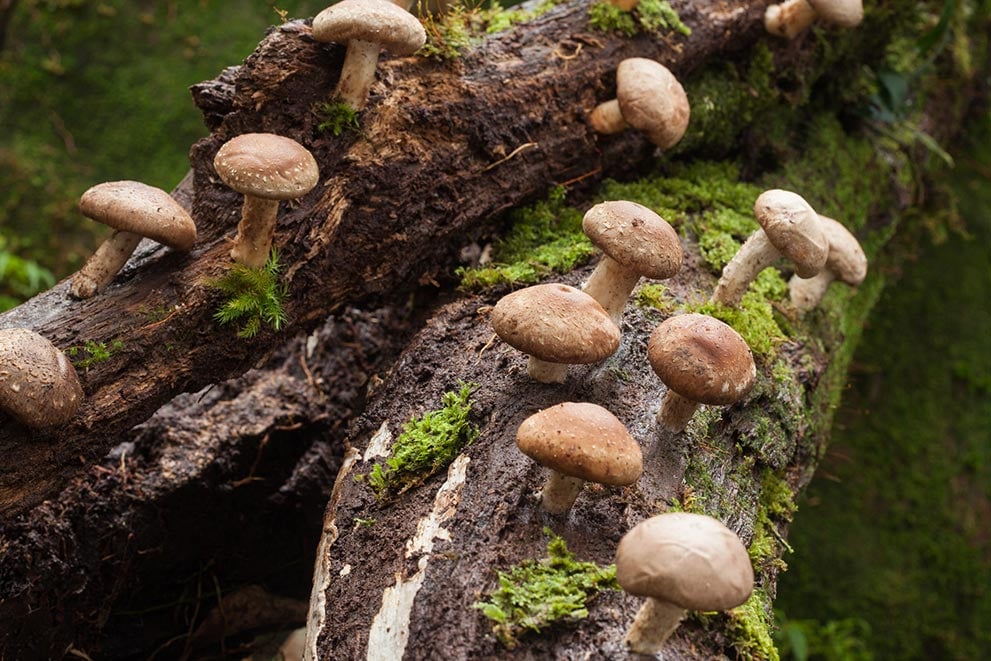 |
| Shitake Mushrooms |
Tradd’s career and fascination with medicinal mushrooms began when he was just 20 years old, at a mushroom farm in Charleston, South Carolina.
“I was just fascinated by the mushroom-growing process and was offered a job running the whole production,” says Tradd.
It didn’t take long before he realized the amazing potential of medicinal mushrooms as a cash crop, and that there was a need for more independent growers.
In 2007 he moved to Florida where he met his wife, Olga, a fellow-mushroom enthusiast: “Olga is Croatian and her family was into mushroom hunting, so we decided to make a go of it,” Tradd says. “Our first growing business started in a 4-by-6 walk-in closet in our apartment in Florida. Then we moved to South Carolina, where we found our first mushroom farm.”
“We found a very small house on 8 acres. It had beautiful trees conducive to growing mushrooms and we knew this was it. Olga’s dad helped us build a greenhouse and a trail where we put our mushroom logs.”
Tradd’s earlier realization that growing medicinal mushrooms could be big business was right on, and within about 3 ½ years they had outgrown their 8-acre farm.
“We had hundreds of people coming to the property for farm tours, we had outgrown our lab [which they use for cultivating spawn] and needed more space.”
As luck would have it, just down the road the Cotters found a 17-acre property with a 42,000 square foot warehouse with beautiful woodland acreage perfect for growing mushrooms.
“We rented the property for a couple years and officially bought it last year,” Tradd says. “Now we have a huge place at our disposal to grow into.”
And grow into it they have.
Mushroom Mountain is now home to a world class laboratory and research facility for cultivation, mycoremediation (the science of using mushrooms to neutralize toxins and environmental pollutants) and medicinal research projects. The laboratory has been constructed to EPA and FDA standards and houses more than 200 species of fungi, most of them native isolates from the Eastern United States.
The Cotters are also a leading supplier of medicinal mushroom spawn in the Southeast. Tradd has written a book about mushroom farming and has become a sought-after speaker and educator. They also have recently branched into the medicinal mushroom supplement market.
Impressive for such humble beginnings!
If the Cotters’ story intrigues you, read on to learn how you could start a similar mushroom growing operation on your rural land.
How Mushrooms Are Grown
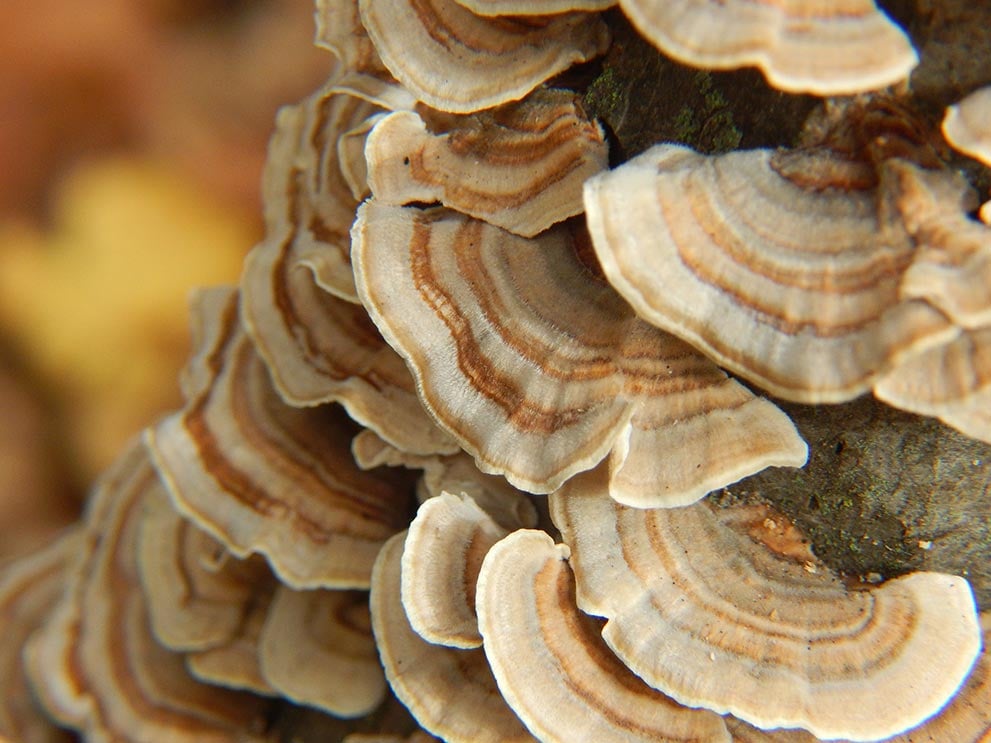 |
| Turkey Tail Mushrooms |
Unlike vegetables that are grown in soil or a hydroponic system, most mushrooms are cultivated and grown on logs—just like they grow in the wild.
How does that work?
The growing process varies a bit based on the mushroom species variety, but essentially works like this:
First you find the right type of log that is compatible with your mushroom species variety and is ideally freshly-cut to prevent other mushrooms spores from competing with your spawn.
For example, shiitakes can be grown on sweet gum logs.
Next, you drill holes in the log, “plant” your spawn in those holes and seal them with a liquid food-grade wax.
You typically obtain mushroom spawn or “spawn plugs” from a reputable supplier offering local spawn.
From there, you stack or partially-bury your logs and store them in the woods, a shed, barn, greenhouse or other shaded area; or you can submerge your logs in water (depending upon the type of spawn), water them well (unless they’re being stored in water) and wait for them to fruit.
Fruiting times vary based on the species variety, but can generally take up 6 to 18 months, at which time you harvest and take to market or dry your final product for future sales, tincture-making, etc. Then start again.
What Type of Land is Most Suitable for Growing Mushroom s?
Though you can grow mushrooms almost anywhere (even in a 4-by-6 closet like Tradd and Olga did starting out), for medium-to-large scale growing operations the ideal land would have a forested area to supply your wood and offer a natural habitat for the fungi to thrive.
“A mixed hardwood forest is ideal,” says Tradd. “In the South, look for oak, maple, cherry and even sweet gum, which can be used for shiitakes and other medicinal species. Try to avoid forests with a lot of conifers, which are not conducive to growing.”
If you’re looking for land with a forest suitable for mushrooms, Cotter stresses the obvious importance of not looking for land in the winter as it is more difficult to identify the types of trees without their leaves.
“If you look for trees that drop their leaves, you can expect that’s a good hardwood forest.”
Even with their 17 acres, the Cotters use Craigslist to buy extra wood and logs for mushroom cultivation. So even if you don’t have the perfect hardwood forest, you can still grow mushrooms using outsourced wood.
What Varieties of Mushrooms are Easiest to Grow for a Beginner?
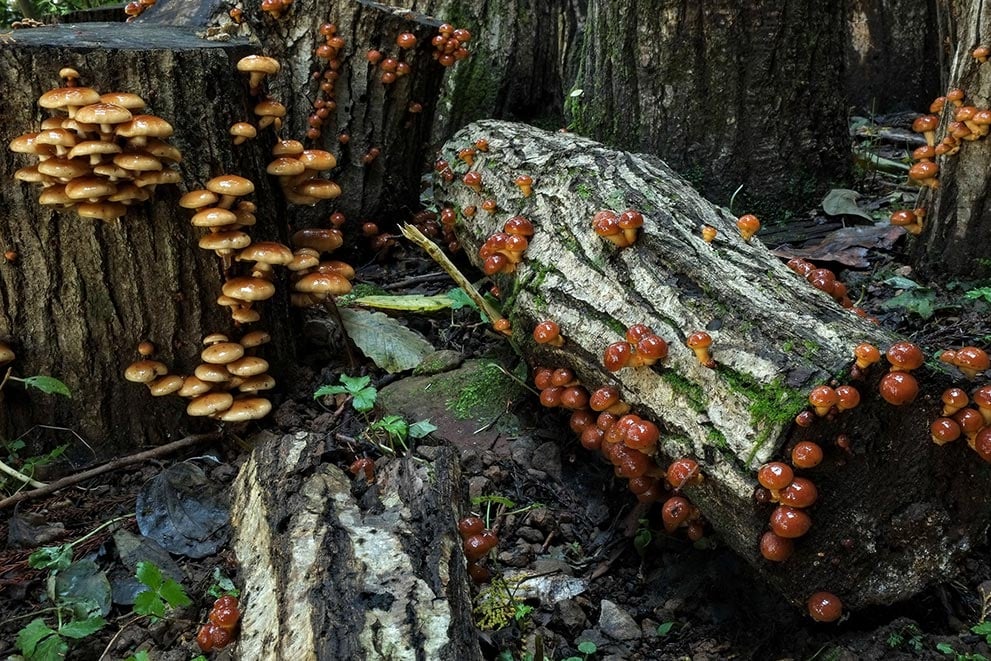 |
| Nameko Mushrooms |
Though it may be tempting to try growing a super-exotic species variety, like Morels or Lion’s Mane, Tradd suggests starting with the following:
“Shiitakes on logs are really forgiving and can stop and go with rain.
“Reishis are pretty easy to grow on oak, maple and cherry buried part-way in the ground.
“And Nameko, is not a very well-known mushroom, but is easy to grow and is very high in anti-cancer compounds. It is the most consumed mushroom in Japan, where they have one of the lowest rates of cancer worldwide.”
What Varieties of Medicinal Mushrooms are Most In-Demand?
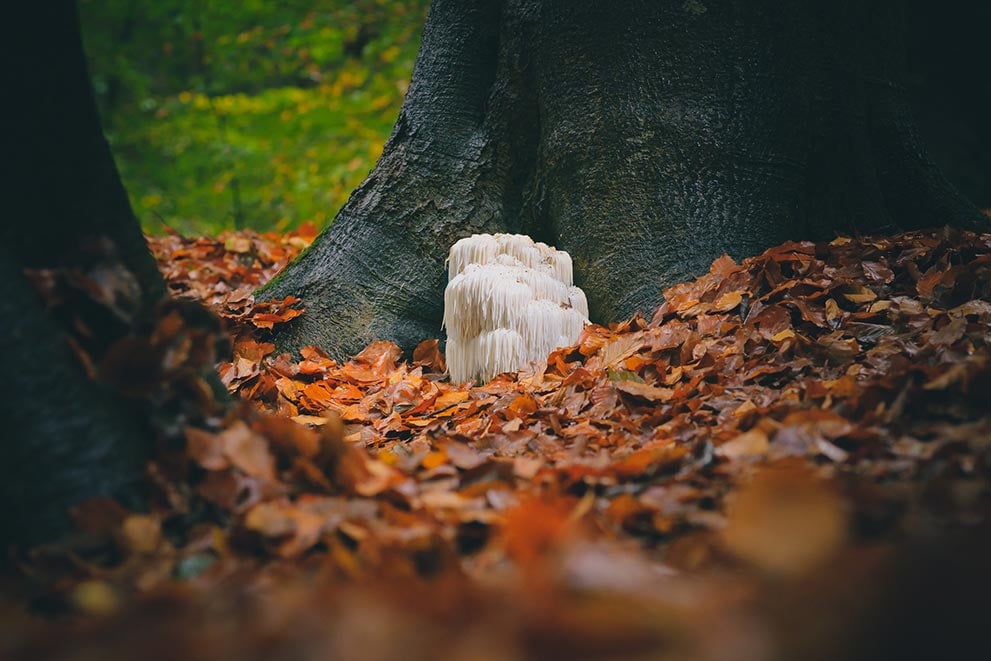 |
| Lion's Mane Mushroom |
“Cordyceps militaris—which we grow in jars without the host and has anti-viral, immune boosting and libido supportive properties; Maitake, Turkey Tail and Lion’s Mane, which is a nerve tonic,” Tradd says.
“Though Chaga is very popular, we don’t condone the commercial harvesting of it anymore because it’s become endangered.
“Every mushroom has medicinal value, some have a wide spectrum of use, and others have very narrow specificity.”
What Type of Upfront Costs, Materials and Equipment Do You Need to Start a Mushroom Farm?
Unlike a large commercial vegetable-growing operation, mushroom growing only takes a few supplies to get started:
“You’ll need wood, spawn, and high-speed drill bits,” says Tradd, adding, “Even if you’re using a regular drill these will make a huge difference, an angle grinder with a bit adapter—these are amazing and make the drilling process a lot faster and easier. You’ll also need food-grade wax to pour on top of your spawn plugs.”
If you’re growing commercially, you may need to invest in soaking tanks, greenhouses, barns, an indoor lab and other materials, but per-Tradd, “If you’re growing seasonally, it doesn’t take a whole lot of equipment or financial investment to grow mushrooms outdoors.”
What Types of Markets Can be Served by Growing Medicinal Mushrooms?
Like all farming ventures, diversification has been key to the Cotters’ success growing mushrooms.
Per Tradd, at present Mushroom Mountain serves three main markets:
#1: Spawn—which are the cultures needed to grow mushrooms. “We offer supplies for commercial and hobby growers, along with great customer service and a free consult to get you started on the right foot.”
#2: Education—the Cotters are well-known for their on-site educational workshops, which are ideal for new growers and hobbyists. They will also be launching “Mushroom Mountain University,” offering a variety of on-demand online courses soon. In addition, Tradd speaks at conferences nationwide and has authored a best-selling book: Organic Mushroom Farming and Mycoremediation.
#3: Medicinal Extracts—recently, Tradd and Olga have begun formulating and manufacturing high-quality, concentrated mushroom tinctures for medicinal use.
“I’ll be honest, I didn’t want to get into this game at all,” Tradd admits. “But we have the backing of Robert Rogers, author of The Fungal Pharmacy. There’s a huge need for these quality tinctures. We have Rogers’ endorsement because we’re making ours the right way, using our own mushrooms, purified spring water, organic non-GMO alcohol from cane sugar and concentrated extractions.”
Due to dietary supplement regulations, Tradd is limited in what he can say about the medicinal effects of Mushroom Mountain’s tinctures.
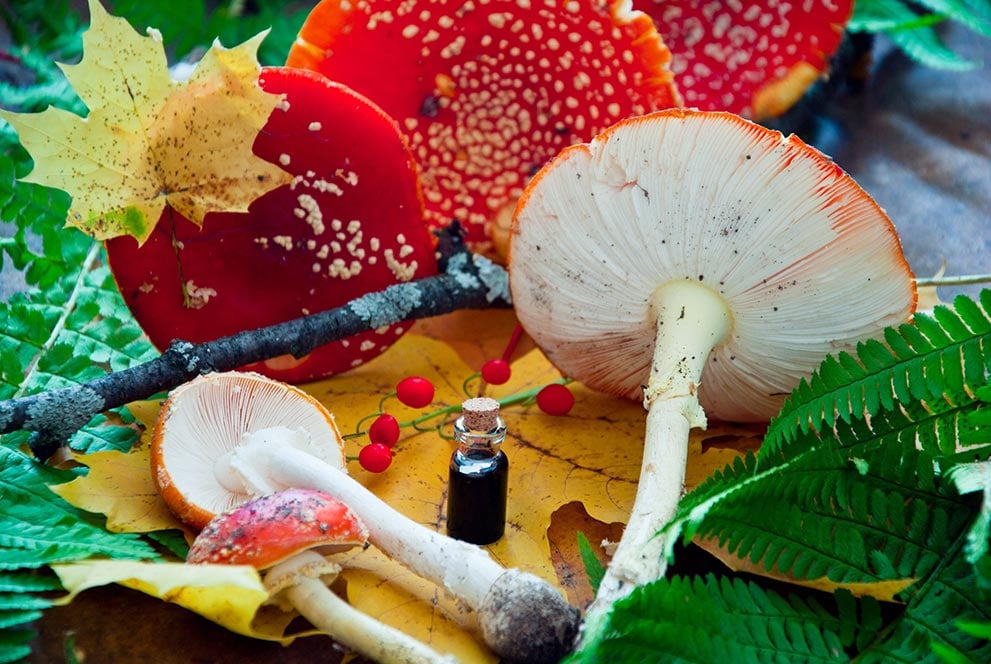 |
| Mushrooms with Tincture |
However, medicinal mushrooms are of enormous significance in the natural medicine and medical science industry.
For example, an extract of the Turkey Tail mushroom known as: PSK (polysaccharide peptide Krestin) has been an approved cancer drug in Japan since the 1970s, and Turkey Tail extracts have been approved for breast and prostate cancer trials in the United States.
In addition, numerous trials have been done (and are being done) on the potent medicinal benefits of medicinal mushrooms for the heart, cell health, brain function, certain cancers, immunity and a wealth of other uses.
There is also a large market for gourmet mushrooms which can be sold at local farmers’ markets or to grocery stores.
Is Mushroom Farming Conducive to Hobby or Part-Time Farming?
“You can grow mushrooms as a full-time or part-time venture,” Tradd says. “I would suggest starting small and giving yourself a year or two to really learn how mushrooms grow. Try different methods and hone your skills.”
Mushroom Mountain offers workshops to help new growers avoid the most common errors and failures that take place during those first couple years. And, according to Tradd, us Southerners have the ideal climate for mushroom growing.
“We are in a really good growing climate down South because we don’t get those extreme freezes, so you can grow mushrooms year-round without a problem.”
Could Mushroom Farming be Right for Your Rural Land?
Despite how easy and low-cost mushrooms can be to grow, Tradd stresses the importance of getting a basic education from a farming mentor or an educational program like his before diving in.
“We can help people avoid a lot of mistakes with just a few hours of hands-on education and practice.”
If you are fascinated or intrigued by fungi, the healing power of nature, and have a nice mixed hardwood forest, growing mushrooms could be an ideal way to put your rural land to profitable, and purposeful, use.
To learn about Mushroom Mountain’s workshops, Tradd’s best-selling book and more, visit them online at: www.mushroommountain.com.


